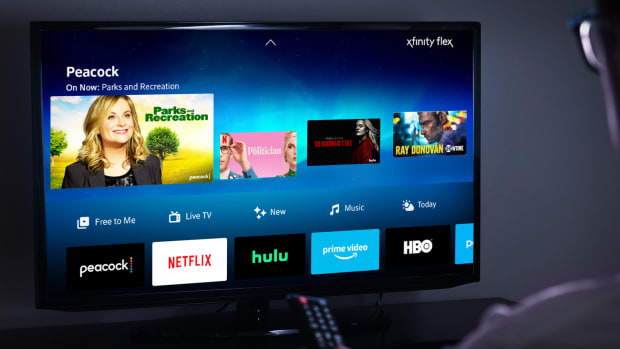
Imagine if you order a product called the "Bacon Triple Mega Burger" from a fast-food chain and when your sandwich shows up, it has a single patty and one sad slice of bacon. There's nothing "Triple" or "Mega" about it and any rational customer would get pretty mad.
That's because people understand all the words in that non-existent cheeseburger's name. When it comes to phone and internet service, however, consumers don't actually understand the difference between 4G and 5G wireless networks or that 10G, when it applies to internet service, actually means something else entirely.
DON'T MISS: Comcast Lists One Cable Price, Charges Another: Here's Every Fee
Comcast (CMCSA) seems more than willing to exploit what its customers and potential customers understand. That's why it has named its latest Xfinity internet upgrade "Xfinity 10G," even though it does not meet any possible definition of 10G.

Image source: Comcast/TheStreet
Comcast's Xfinity 10G Is Not That In Any Way
When used in relation to mobile phones, 5G means fifth-generation technology. But 10G, which is an internet network term, actually refers to speed.
"10G stands for '10 gigabits per second' and it refers to the internet speed of the wired network that the cable industry will deliver," according to 10GPlatform.com.
Comcast's Xfinity has taken on the Xfinity 10G name, but it's not delivering anything close to 10 gigabits per second speed. The company's sales page contains the following language:
"Limited time! 200 Mbps internet with WiFi equipment on the Xfinity 10G Network."
It takes 1,000 Mbps to equal 1 gigabit, so Comcast isn't offering anything that's even sort of 10G. The company even sort of lays that out on another one of its web pages.
"Gigabit Internet service transmits data up to 1 Gigabit per second (Gbps) — or 1,000 megabits per second (Mbps). With that rate of speed, you can download a full HD movie in just a few minutes, update your smartphone’s operating system in seconds, and join videoconferences with ultra-high definition video, just to name a few."
This Is More Comcast Being Comcast
Comcast isn't exactly intentionally misleading customers to think they're getting 10 gigabit speed, but it's also not doing anything to make it clear that it's not. The Xfinity 10G name falls somewhere between aspirational, wishful thinking and intentionally deceptive.
Here's the description of Xfinity 10G from the company's website.
"The Xfinity 10G Network is the new brand for our next-generation network. The Xfinity 10G Network delivers a powerful connection to our customers that will continue to get smarter, faster, more reliable, and secure. It is the network that our customers use today and the network that will power their connectivity experience in the future."
There's no actual speed claim made and most of what the company wrote doesn't have any actual legal meaning. This is a case where the company has chosen to use a name that doesn't actually reflect the product it sells.
That's okay if the term used is vague or open-for-debate like "world famous," or, in the case of internet, "fast." Things become more perilous when you use a term that has an actual meaning but don't actually tie your product into that meaning.
Comcast knows what it's doing. The company wants to convey a message that it offers fast internet service and by historical standards, it actually does. Yes, there are faster options out there, but for most people, Xfinity, Xfinity 10G, or Xfinity Gigabit all deliver more than enough speed for gaming, streaming, downloading, video meetings, and whatever else people might be doing.
The company does not need a deceptive name for what's actually a pretty good, maybe even very good (customer service aside) product. Comcast doesn't need to, but it does, because as it has shown over and over, this is not a company that puts customers first.
Comcast might as well call it Xfinity 20G Hologram Teleport because that's not really more far-fetched than the Xfinity 10G name.







